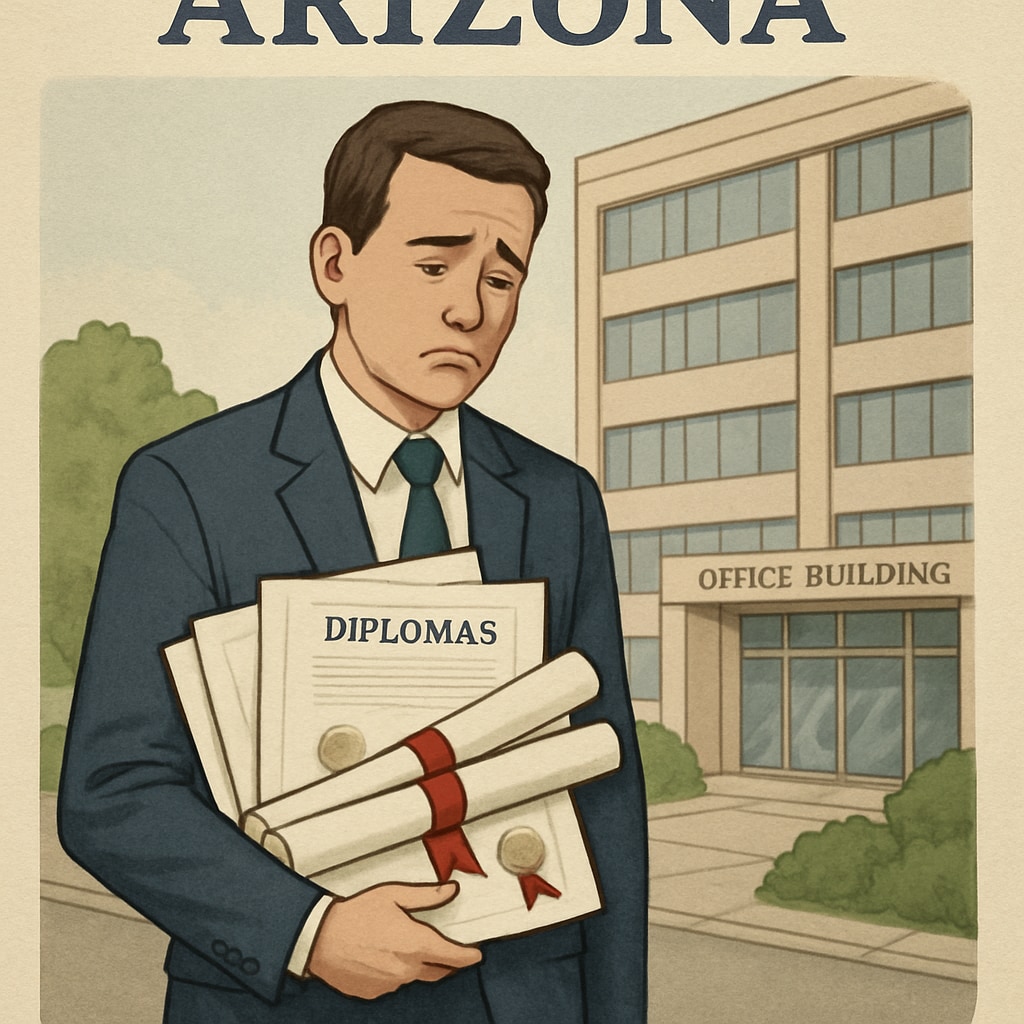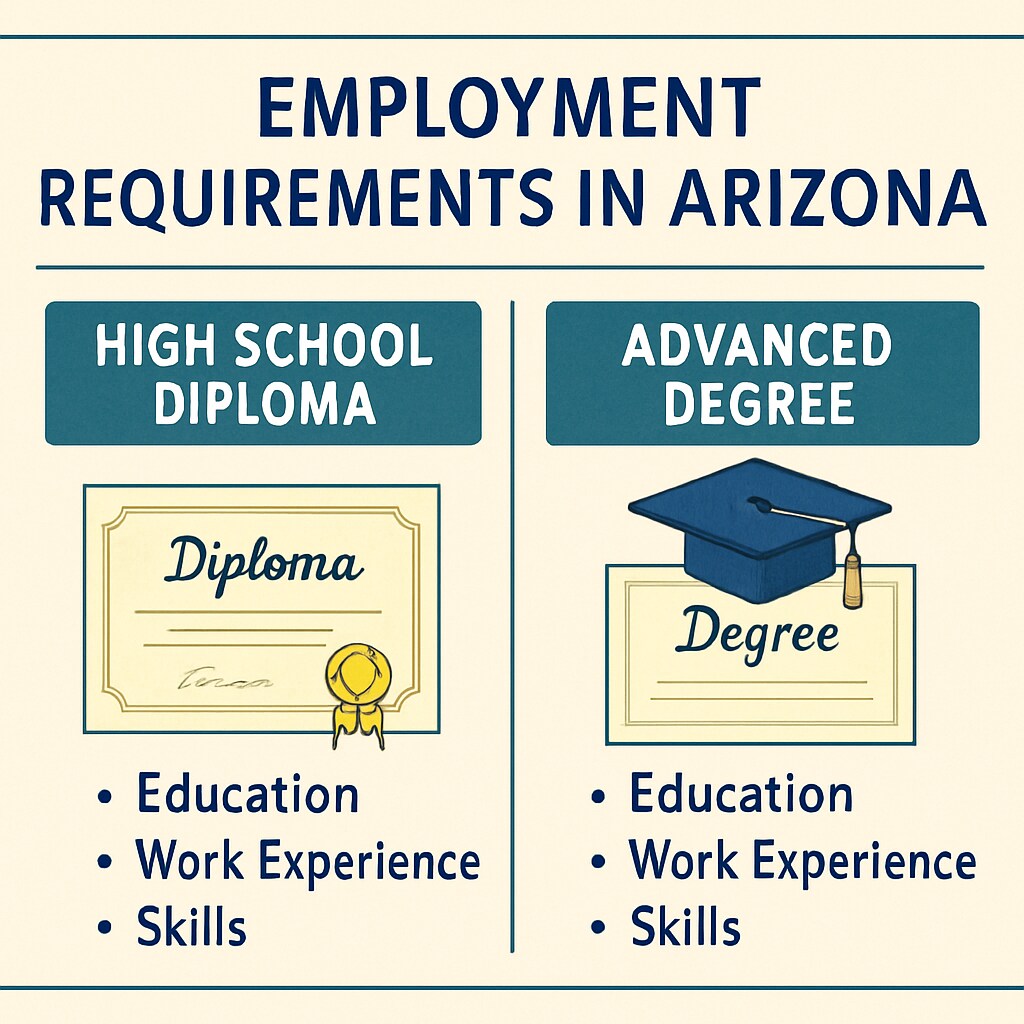In Arizona’s employment landscape, a peculiar paradox exists: possessing three college degrees may not suffice for job eligibility, while a high school diploma is often considered enough. This issue highlights the challenges of “education recognition” and “degree discrimination,” calling into question the logic behind certain employment qualifications. As higher education becomes increasingly accessible, why are advanced degrees sometimes undervalued in favor of rudimentary credentials?
Why Education Recognition Matters
Education recognition refers to the validation of academic achievements within professional or societal contexts. In theory, higher education should open doors to advanced career opportunities. However, in Arizona, the employment system sometimes undermines this principle. For example, certain state jobs require a high school diploma or GED as a prerequisite but fail to acknowledge higher qualifications as a valid alternative.
This puzzling criterion not only dismisses the value of higher education but also perpetuates “degree discrimination.” Professionals with advanced degrees find themselves paradoxically excluded from roles they are overqualified for, while those with minimal credentials meet the baseline requirements.

The Implications of Degree Discrimination
Degree discrimination has far-reaching consequences, both for individuals and society at large. First, it discourages people from pursuing higher education if their achievements are not recognized in the job market. Second, it creates inefficiencies within the workforce by potentially sidelining more qualified candidates.
For instance, an individual with a bachelor’s and master’s degree in business administration might be overlooked for a state administrative role due to the lack of a high school diploma—a requirement that appears outdated when juxtaposed with advanced degrees. This scenario is not only unjust but also counterproductive for the organization and the economy.
Furthermore, this discrepancy undermines trust in the education system. If the pursuit of higher education does not translate into better opportunities, individuals may question its value, leading to a decline in college enrollments and a less skilled workforce overall.

Rethinking Employment Qualifications
Addressing this paradox requires a reevaluation of how educational qualifications are assessed in employment. Policymakers and employers must ensure that job requirements reflect the realities of the modern workforce. Here are some potential solutions:
- Update Job Criteria: Employers should revise outdated qualifications to include higher education credentials as valid alternatives to high school diplomas.
- Promote Skills-Based Hiring: Focus on specific skills and competencies rather than formal educational milestones. This approach can help bridge the gap between education and employability.
- Raise Awareness: Highlight the value of higher education through public campaigns and policy reforms, ensuring that advanced degrees are recognized and rewarded.
Implementing these changes could help Arizona—and other states facing similar issues—align their employment practices with the demands of a rapidly evolving job market.
The Way Forward
In conclusion, the paradox of undervaluing advanced degrees while prioritizing minimal credentials in Arizona’s employment system must be addressed. By recognizing the importance of higher education and eliminating degree discrimination, we can create a more equitable and efficient workforce. After all, education should empower individuals, not hinder their professional aspirations. As Arizona moves forward, rethinking its employment qualification framework will be essential to fostering a fair and inclusive job market.
Readability guidance: Short paragraphs and lists summarize key points. The article balances informative content with actionable solutions, ensuring accessibility for a broad audience. Additionally, overuse of passive voice and long sentences is avoided, favoring clarity and conciseness.


